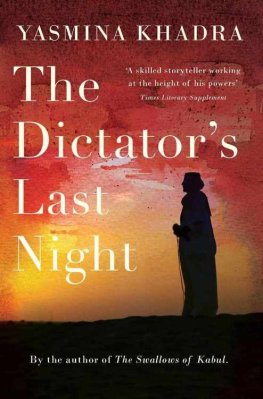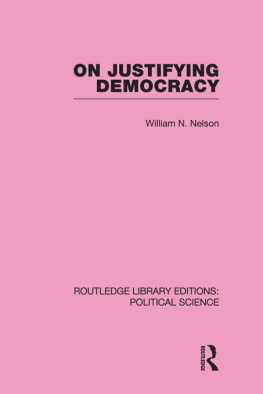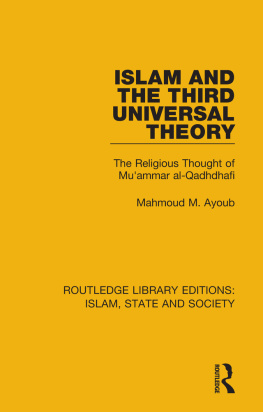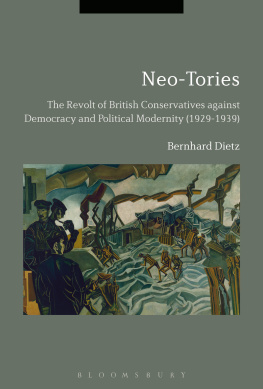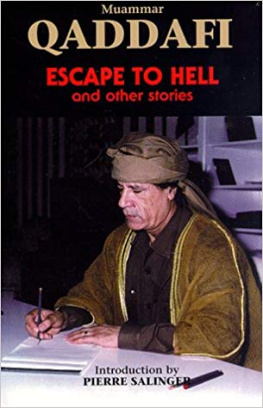Muammar Al-Gathafi - The Green Book
Here you can read online Muammar Al-Gathafi - The Green Book full text of the book (entire story) in english for free. Download pdf and epub, get meaning, cover and reviews about this ebook. City: London, year: 1976, publisher: Martin, Brian & O'Keeffe, genre: Science. Description of the work, (preface) as well as reviews are available. Best literature library LitArk.com created for fans of good reading and offers a wide selection of genres:
Romance novel
Science fiction
Adventure
Detective
Science
History
Home and family
Prose
Art
Politics
Computer
Non-fiction
Religion
Business
Children
Humor
Choose a favorite category and find really read worthwhile books. Enjoy immersion in the world of imagination, feel the emotions of the characters or learn something new for yourself, make an fascinating discovery.

- Book:The Green Book
- Author:
- Publisher:Martin, Brian & O'Keeffe
- Genre:
- Year:1976
- City:London
- Rating:4 / 5
- Favourites:Add to favourites
- Your mark:
- 80
- 1
- 2
- 3
- 4
- 5
The Green Book: summary, description and annotation
We offer to read an annotation, description, summary or preface (depends on what the author of the book "The Green Book" wrote himself). If you haven't found the necessary information about the book — write in the comments, we will try to find it.
The Green Book — read online for free the complete book (whole text) full work
Below is the text of the book, divided by pages. System saving the place of the last page read, allows you to conveniently read the book "The Green Book" online for free, without having to search again every time where you left off. Put a bookmark, and you can go to the page where you finished reading at any time.
Font size:
Interval:
Bookmark:
Part One
THE INSTRUMENT OF GOVERNMENT
The instrument of government is the prime political problem confronting human communities (The problem of the instrument of government entails questions of the following kind. What form should the exercise of authority assume? How ought societies to organize themselves politically in the modern world?)
Even conflict within the family is often the result of the failure to resolve this problem of authority. It has clearly become more serious with the emergence of modern societies.
People today face this persistent question in new and pressing ways. Communities are exposed to the risks of uncertainty, and suffer the grave consequences of wrong answers. Yet none has succeeded in answering it conclusively and democratically. THE GREEN BOOK presents the ultimate solution to the problem of the proper instrument of government.
All political systems in the world today are a product of the struggle for power between alternative instruments of government. This struggle may be peaceful or armed, as is evidenced among classes, sects, tribes, parties or individuals. The outcome is always the victory of a particular governing structurebe it that of an individual, group, party or classand the defeat of the people; the defeat of genuine democracy.
Political struggle that results in the victory of a candidate with, for example, 51 per cent of the votes leads to a dictatorial governing body in the guise of a false democracy, since 49 per cent of the electorate is ruled by an instrument of government they did not vote for, but which has been imposed upon them. Such is dictatorship. Besides, this political conflict may produce a governing body that represents only a minority. For when votes are distributed among several candidates, though one polls more than any other, the sum of the votes received by those who received fewer votes might well constitute an overwhelming majority. However, the candidate with fewer votes wins and his success is regarded as legitimate and democratic! In actual fact, dictatorship is established under the cover of false democracy. This is the reality of the political systems prevailing in the world today. They are dictatorial systems and it is evident that they falsify genuine democracy.
PARLIAMENTS
Parliaments are the backbone of that conventional democracy prevailing in the world today. Parliament is a misrepresentation of the people, and parliamentary systems are a false solution to the problem of democracy. A parliament is originally founded to represent the people, but this in itself is undemocratic as democracy means the authority of the people and not an authority acting on their behalf. The mere existence of a parliament means the absence of the people. True democracy exists only through the direct participation of the people, and not through the activity of their representatives. Parliaments have been a legal barrier between the people and the exercise of authority, excluding the masses from meaningful politics and monopolizing sovereignty in their place. People are left with only a facade of democracy, manifested in long queues to cast their election ballots.
To lay bare the character of parliaments, one has to examine their origin. They are either elected from constituencies, a party, or a coalition of parties, or are appointed. But all of these procedures are undemocratic, for dividing the population into constituencies means that one member of parliament represents thousands, hundreds of thousands, or millions of people, depending on the size of the population. It also means that a member keeps few popular organizational links with the electors since he, like other members, is considered a representative of the whole people. This is what the prevailing traditional democracy requires. The masses are completely isolated from the representative and he, in turn, is totally removed from them. Immediately after winning the electors votes the representative takes over the peoples sovereignty and acts on their behalf. The prevailing traditional democracy endows the member of parliament with a sacredness and immunity which are denied to the rest of the people. Parliaments, therefore, have become a means of plundering and usurping the authority of the people. It has thus become the right of the people to struggle, through popular revolution, to destroy such instrumentsthe so-called parliamentary assemblies which usurp democracy and sovereignty, and which stifle the will of the people. The masses have the right to proclaim reverberantly the new principle: no representation in lieu of the people.
If parliament is formed from one party as a result of its winning an election, it becomes a parliament of the winning party and not of the people. It represents the party and not the people, and the executive power of the parliament becomes that of the victorious party and not of the people. The same is true of the parliament of proportional representation in which each party holds a number of seats proportional to their success in the popular vote. The members of the parliament represent their respective parties and not the people, and the power established by such a coalition is the power of the combined parties and not that of the people. Under such systems, the people are the victims whose votes are vied for by exploitative competing factions who dupe the people into political circuses that are outwardly noisy and frantic, but inwardly powerless and irrelevant. Alternatively, the people are seduced into standing in long, apathetic, silent queues to cast their ballots in the same way that they throw waste paper into dustbins. This is the traditional democracy prevalent in the whole world, whether it is represented by a one-party, two-party, multiparty or non-party system. Thus it is clear that representation is a fraud.
Moreover, since the system of elected parliaments is based on propaganda to win votes, it is a demagogic system in the real sense of the word. Votes can be bought and falsified. Poor people are unable to compete in the election campaigns, and the result is that only the rich get elected. Assemblies constituted by appointment or hereditary succession do not fall under any form of democracy.
Philosophers, thinkers, and writers advocated the theory of representative parliaments at a time when peoples were unconsciously herded like sheep by kings, sultans and conquerors. The ultimate aspiration of the people of those times was to have someone to represent them before such rulers. When even this aspiration was rejected, people waged bitter and protracted struggle to attain this goal.
After the successful establishment of the age of the republics and the beginning of the era of the masses, it is unthinkable that democracy should mean the electing of only a few representatives to act on behalf of great masses. This is an obsolete structure. Authority must be in the hands of all of the people.
The most tyrannical dictatorships the world has known have existed under the aegis of parliaments.
THE PARTY
The party is a contemporary form of dictatorship. It is the modern instrument of dictatorial government. The party is the rule of a part over the whole. As a party is not an individual, it creates a superficial democracy by establishing assemblies, committees, and propaganda through its members. The party is not a democratic instrument because it is composed only of those people who have common interests, a common perception or a shared culture; or those who belong to the same region or share the same belief. They form a party to achieve their ends, impose their will, or extend the dominion of their beliefs, values, and interests to the society as a whole. A partys aim is to achieve power under the pretext of carrying out its program. Democratically, none of these parties should govern a whole people who constitute a diversity of interests, ideas, temperaments, regions and beliefs. The party is a dictatorial instrument of government that enables those with common outlooks or interests to rule the people as a whole. Within the community, the party represents a minority.
Font size:
Interval:
Bookmark:
Similar books «The Green Book»
Look at similar books to The Green Book. We have selected literature similar in name and meaning in the hope of providing readers with more options to find new, interesting, not yet read works.
Discussion, reviews of the book The Green Book and just readers' own opinions. Leave your comments, write what you think about the work, its meaning or the main characters. Specify what exactly you liked and what you didn't like, and why you think so.

